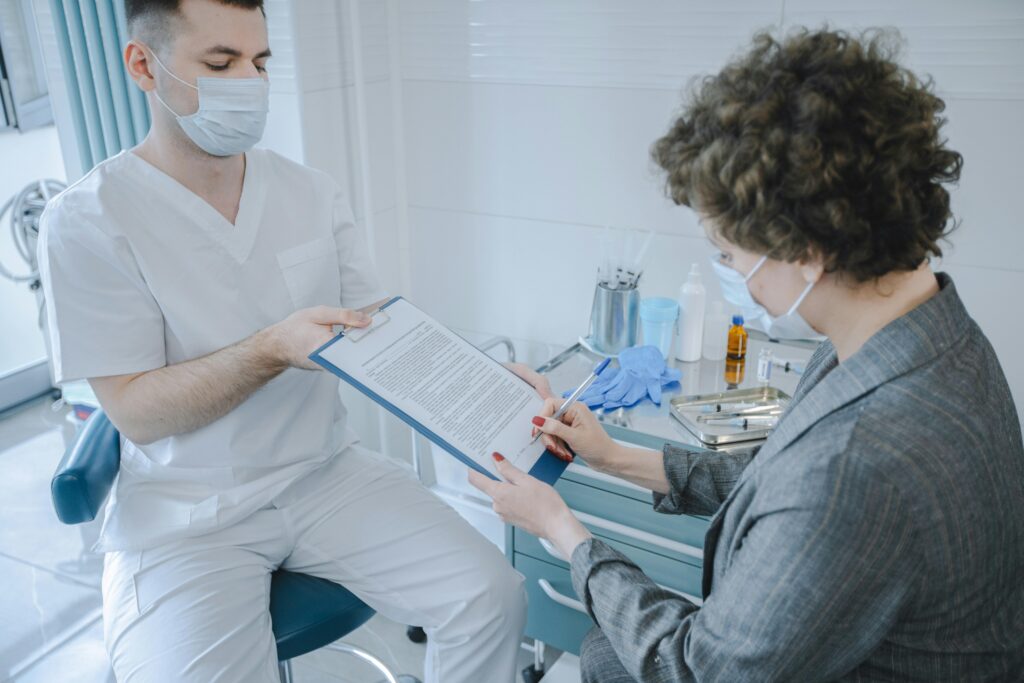Study Finds Testosterone Therapy Does Not Increase Prostate Cancer Risk—What Men Need to Know
For decades, testosterone therapy has carried a cloud of controversy—chief among the concerns: does it raise the risk of prostate cancer? Many physicians and patients alike have worried that boosting

For decades, testosterone therapy has carried a cloud of controversy—chief among the concerns: does it raise the risk of prostate cancer? Many physicians and patients alike have worried that boosting testosterone levels might fuel undetected cancer or accelerate tumor growth.
But a growing body of evidence, including a landmark 2023 meta-analysis, is flipping that narrative.
New research confirms that testosterone replacement therapy (TRT) does not increase the risk of developing prostate cancer—and in some cases, it may even be protective.
In this article, we break down the science, the myth, and what this means for men considering hormone therapy.
Testosterone Therapy: What Is It?
Testosterone therapy, often called TRT (testosterone replacement therapy), is used to treat male hypogonadism—a condition where the body doesn’t produce enough testosterone. This can happen due to aging, injury, disease, or certain medications.
Common symptoms of low testosterone include:
- Fatigue
- Reduced muscle mass and strength
- Decreased libido and erectile dysfunction
- Depression or mood changes
- Cognitive decline or “brain fog”
- Loss of bone density
TRT is available in several forms: injections, gels, patches, pellets, and oral tablets.
The Prostate Cancer Myth
For years, the medical consensus leaned on the assumption that testosterone “feeds” prostate cancer. This belief originated from the 1941 Huggins and Hodges study, which showed that lowering testosterone could shrink metastatic prostate cancer tumors.
As a result, many physicians feared that increasing testosterone—especially in older men—could activate dormant cancer cells or raise the risk of developing prostate cancer.
But those early studies were based on castration-sensitive cancer in advanced stages. Modern research now shows that the relationship is not so simple.
Read About: Hormone in Women’s Health
What the Latest Research Says

2023 Meta-Analysis (Published in JAMA Network Open):
- Researchers reviewed 38 clinical trials and observational studies involving over 3 million men.
- Key finding: TRT was not associated with an increased risk of prostate cancer, whether localized or advanced.
- The risk remained stable regardless of age, duration of therapy, or baseline testosterone levels.
Other Notable Studies:
- A 2016 study in the New England Journal of Medicine found no increased risk of prostate cancer in men using TRT compared to placebo.
- A 2020 analysis published in European Urology tracked over 150,000 men and found no difference in prostate cancer incidence between TRT users and non-users.
- Johns Hopkins researchers reported that TRT users had a similar or even slightly lower risk of aggressive prostate cancer than non-users.
Understanding the “Saturation Model”
Much of the misunderstanding stems from what’s known as the “saturation model” of testosterone and prostate cancer.
This model suggests that prostate health cells are sensitive to testosterone only up to a certain point. Once that saturation threshold is reached (typically in the normal physiological range), adding more testosterone does not further stimulate prostate tissue growth—or cancer development.
In simple terms: normalizing low testosterone levels won’t “feed” prostate cancer in the way early researchers feared.
Are There Any Risks with TRT?
While TRT appears safe in terms of prostate cancer risk, it’s not entirely without side effects or complications. Men considering testosterone therapy should discuss potential risks with their healthcare provider.
Possible side effects include:
- Increased red blood cell count (polycythemia), raising stroke or clot risk
- Acne or oily skin
- Mild fluid retention
- Sleep apnea worsening in some individuals
- Decreased sperm production and testicular shrinkage
- Mood changes
Regular monitoring—including PSA levels, hematocrit, and testosterone concentration—is recommended during treatment.
Who Should—and Shouldn’t—Use TRT?
TRT is generally prescribed for men with clinically diagnosed low testosterone, confirmed through lab tests and persistent symptoms.
It is not recommended for:
- Men with active or untreated prostate cancer
- Those with severe sleep apnea or heart failure
- Men seeking to preserve fertility (TRT can reduce sperm production)
- Individuals without confirmed hypogonadism
Reframing the Conversation on Men’s Health
The fear that TRT causes prostate cancer has led to widespread under-treatment of hypogonadism, leaving many men to suffer in silence with fatigue, depression, and reduced quality of life.
With growing evidence pointing to the safety and potential benefits of testosterone therapy, it’s time to shift from fear-based medicine to evidence-based care.
Men deserve accurate information, not outdated myths.
What You Can Do
If you suspect low testosterone, here’s a proactive path forward:
- Get tested: A simple blood test (done in the morning) can check total and free testosterone levels
- Track symptoms: Keep a journal of energy levels, mood, libido, and cognitive changes
- Talk to a specialist: Consider seeing an endocrinologist or urologist familiar with TRT
- Ask about prostate monitoring: Discuss PSA testing and digital rectal exams if pursuing therapy
- Stay informed: Research evolves—keep up with new findings and medical guidance
The wrap up
The idea that testosterone therapy causes prostate cancer is one of the most persistent myths in men’s health. But science is catching up—and rewriting the narrative.
Testosterone therapy, when appropriately prescribed and monitored, does not raise the risk of prostate cancer.
For many men, it can be life-changing.
If you’ve been hesitating, afraid, or misinformed—it’s time to talk to your doctor with confidence and clarity.
By Ravoke News Desk for Ravoke.com








